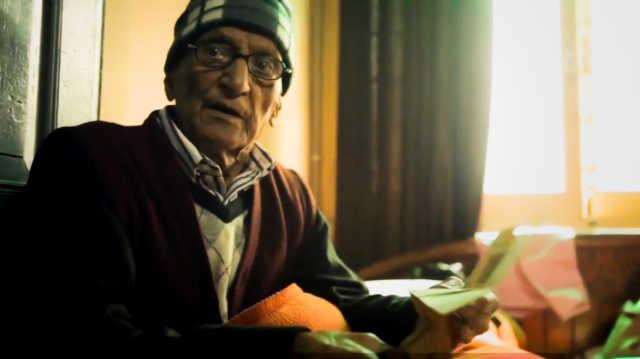
Sukhpreet Kahlon
New Delhi, 04 Sep 2022 11:00 IST
Priyanka Chhabra’s documentary mobilises memory and a personal archive to excavate the psyche of a migrant, along with questioning official history.

Priyanka Chhabra’s documentary Iqrar-naama (The Agreement) begins with an enquiry, “If a person multiplies over time, so must histories”. Contemplating questions about displacement in the wake of the Partition of India, the film mobilises oral narratives, conjuring up the psyche of a migrant, primarily through official documents.
The story of Charandas Bangia, a Partition refugee from Lyallpur (now Faislabad, Pakistan) who settled in Amritsar, Punjab is told through a collection of his personal archive. Consisting of letters, documents and official papers that are the only markers of the identity of a person, Bangia’s narrative describes his move from Pakistan to India during a tumultuous time in history.
During this move, he kept all official papers with himself that serve as crucial markers during his journey and in many ways, encapsulate his life.
Matriculation certificates, land agreements, house allotment papers, library cards, appeals and reminders to officials, and other documents that have been carefully preserved become ways of accessing and questioning official history as Chhabra intersperses Bangia’s narrative with letters exchanged between state officials, trying to formulate policies for a baffling, troubling time in the nation’s history.
The brusque nature of these exchanges reveals the conundrum that politicians found themselves in and is juxtaposed with the narration from literary works, notably Joginder Paul's novel Khwab Rau (Sleep Walkers) and Krishna Sobti's Zindaginama, which foreground the poignancy of loss felt by displaced refugees.
Filming Bangia in his home, rifling through his papers, Chabbra constantly foregrounds memory and emotion onto a dry, official history that erases the people who make up the numbers on the page. The production values of the film are average and one finds oneself wanting to see Bangia's relationship to the past through his eyes. The animated graphics on files and an alternative association with the alphabet pushes us to see the fissures in received history.
The protagonist of Khwab Rau questions, “Can there be a greater misfortune than not feeling at home in your own house?” Despite Bangia’s family questioning the use of his papers, we wonder about the possibility of a return to one’s home, even if only in imagination.
Iqrar-naama has been supported by India Foundation for the Arts (IFA), Bangalore. Chhabra’s previous film, Pichla Varka (2018), also engaged with the Partition, through the story of ordinary women who were Partition refugees.
Iqraar-naama was screened as part of a three-day film festival on 75 years of Partition organised by Kriti Film Club in New Delhi.

